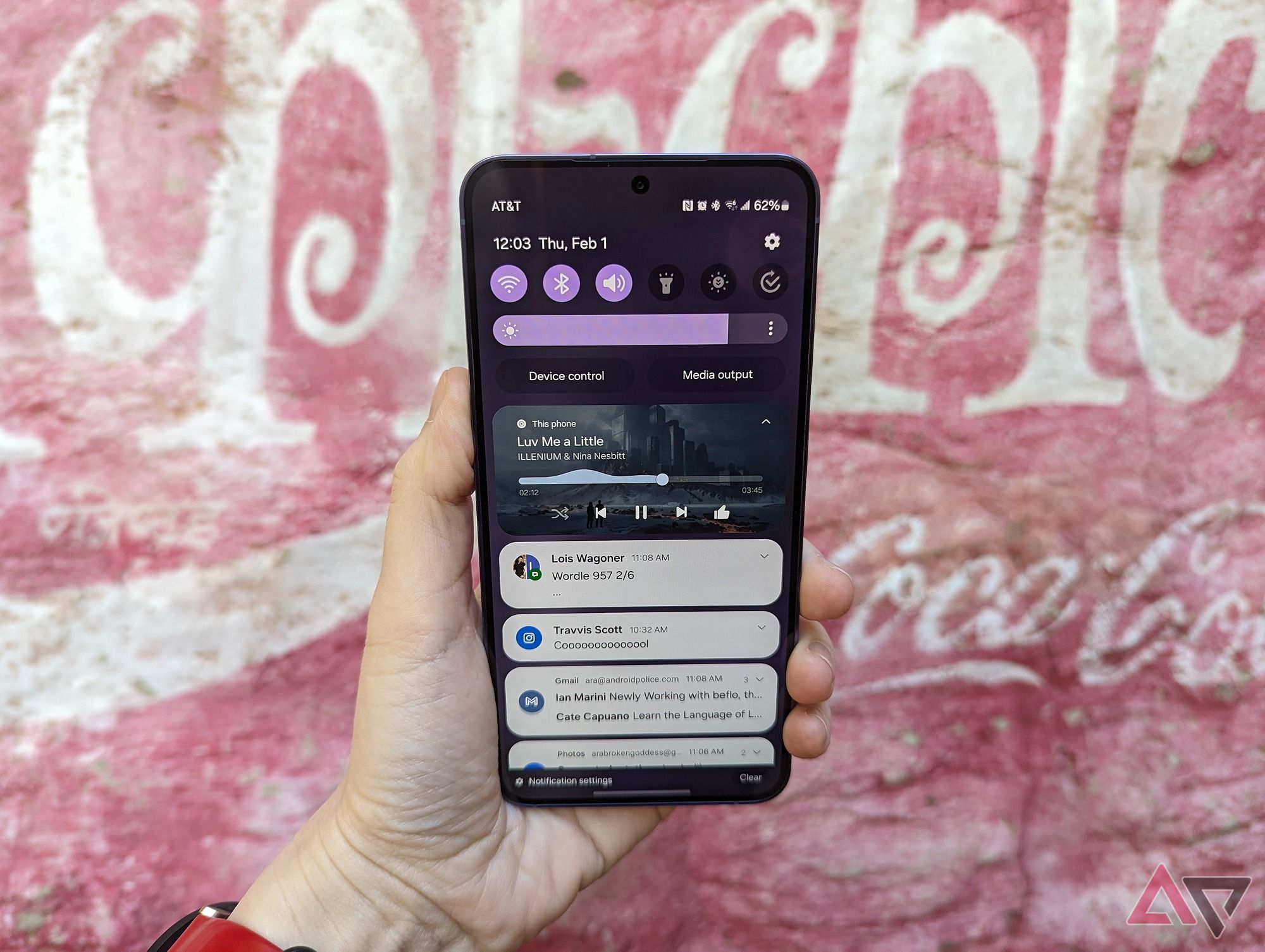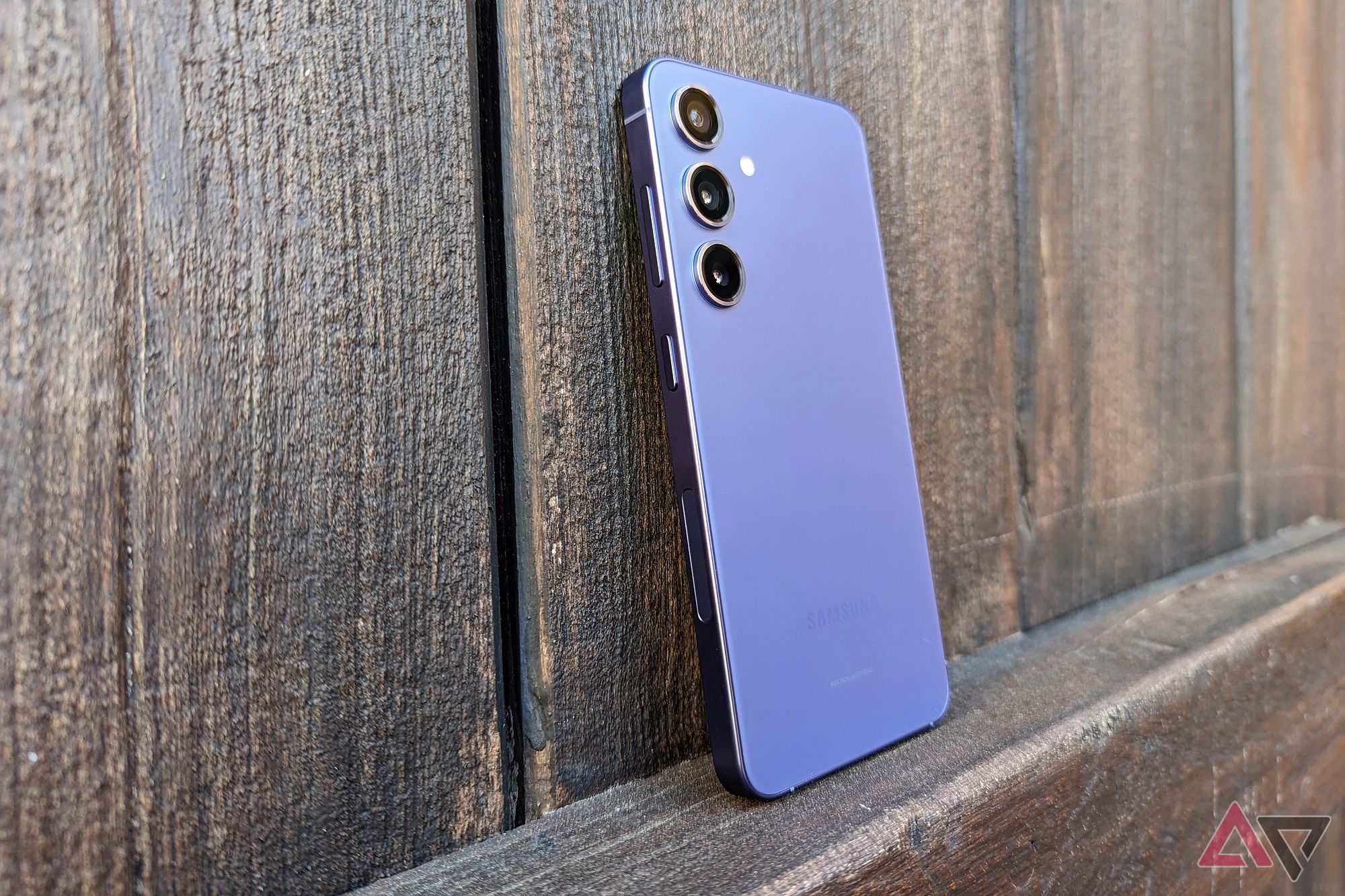It may be hard to believe today, but there was once a time when a 6-inch smartphone was considered massive. However, as manufacturers built more sophisticated and powerful camera systems and customers demanded more screen real estate, battery life, and power, the 6.5-inch+ screens that once graced only those smartphones facetiously referred to as “phablets” have become the norm rather than the exception. Today, most of the best Android phones are in this larger size range, and while they offer some incredible features and gorgeous screens, sometimes a 6.7-inch phone is just too much.
Thankfully, if you have smaller hands — or simply want a more pocketable phone — there are still some great options on the market. While “smaller” these days typically means a display around six inches, that’s still refreshingly compact and light compared to some of the 6.8-inch+ behemoths on the market. The advent of more reliable folding screen technology has also given rise to devices that can offer you the best of both worlds, with an expansive screen that folds closed into a more compact form.
The good news is that many of today’s smaller phones don’t compromise on power — some of the best of these have the same screens and processors as their larger siblings while packing in as much advanced camera hardware as their smaller frames can handle. Here are some of the best of the bunch to suit nearly any taste.
Small phones that you can use with one hand

Asus Zenfone 10
Truly compact Android phone
The Asus Zenfone 10 is the ultimate small phone due to its combination of size, performance, and price. With a Snapdragon 8 Gen 2 and up to 16GB of RAM, the Zenfone 10 is more than capable of keeping up with your daily habits. Throw in its compact frame and small 5.92-inch display, and you have a well-rounded device that is perfect for one-handed use.
- One-handed use is easy
- Plenty of power for good value
- Headphone jack
- Software update policy lags behind the competition
- Design isn’t for everyone
If you are looking for a compact phone that can keep up with your daily needs, look no further than the Asus Zenfone 10. This small device is not short on power, thanks to the included Snapdragon 8 Gen 2 processor. One of the drawbacks of last year’s Zenfone 9 was the lack of wireless charging, but Asus fixed that this year.
Gestures in the ZenTouch suite offer some simple tried and true methods of navigating your phone, such as the “double tap to wake and lock” feature we’ve seen on other phones. But the “edge” tool that brings up a panel of apps and tools you can access picture-in-picture while in any other app, and the customizable “tap on the back” shortcut, make the compact design of the phone more than just a novelty — it’s part of its identity.

Asus Zenfone 10 review: The last of the (good) small phones
Good things still come in small packages
Although the double-camera array on the back of the Asus Zenfone 10 isn’t the best implementation we’ve seen on a smartphone, it’s acceptable for posting pictures to social media accounts. The 50MP main sensor is good at capturing most shots, especially in full-resolution mode, making it a decent point-and-shoot camera. And given that the Zenfone 10’s reasonable MSRP sees frequent discounts now, it’s a hard bargain to pass up.
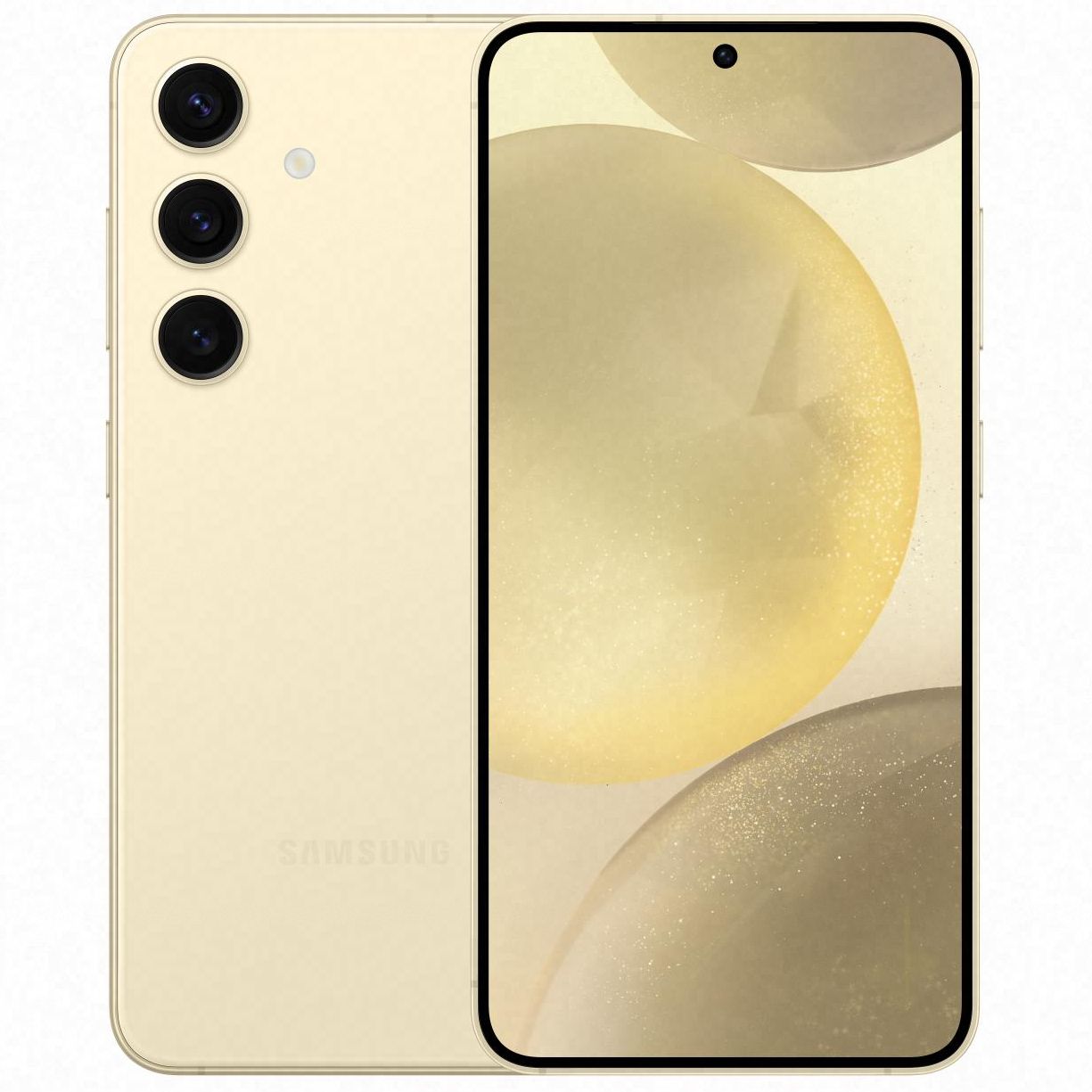
Samsung Galaxy S24
Poised to live out its 7-year Android lifespan swimmingly
While it didn’t see a ton of upgrades compared to the S23, the Galaxy S24 packs in just enough improvements to further cement its place at the front of the pack. Increased efficiency, an even better display, and an impressive Android update promise to lead the charge.
- Nearly unbeatable brightness
- Excellent battery life
- Industry-leading performance
- Still limited to 25-watt charging
- Typical Samsung camera struggles
The seemingly minor design change of flattening the sides of the S24 family had two big knock-on effects. Firstly, it allows for a 0.1-inch-larger display without increasing the phone’s overall size. Possibly more importantly, it’s easier to hold onto securely, especially during one-handed use. To make matters better, a slightly textured finish now adorns the back, cutting into the slipperiness the S23 suffered from.
From a hardware and performance standpoint, the S24 only slightly improves upon its predecessor, but the relatively minor changes there do have two effects. The Snapdragon 8 Gen 3 isn’t significantly more powerful than the Gen 2, but a slight clock speed bump helps ensure the S24 will perform well throughout its promised seven Android updates.
Arguably more relevant, though, the new chip’s even greater efficiency pairs with a slightly larger battery to last even longer between charges. This doesn’t just improve battery life, but also positively affects the battery’s longevity, further improving the phone’s outlook over the course of the aforementioned Android update lifespan.
We were hard-pressed to come up with major negatives to the S24, but unfortunately, Samsung failed to address the only two big complaints we had. The 25W charging still doesn’t impress, especially given the phone’s cost. And Samsung’s cameras, while better than before, still suffer from periodic blurriness and sometimes questionable image processing. Nonetheless, the cameras work fine for most purposes, and the S24’s a better flagship-class investment than ever before.
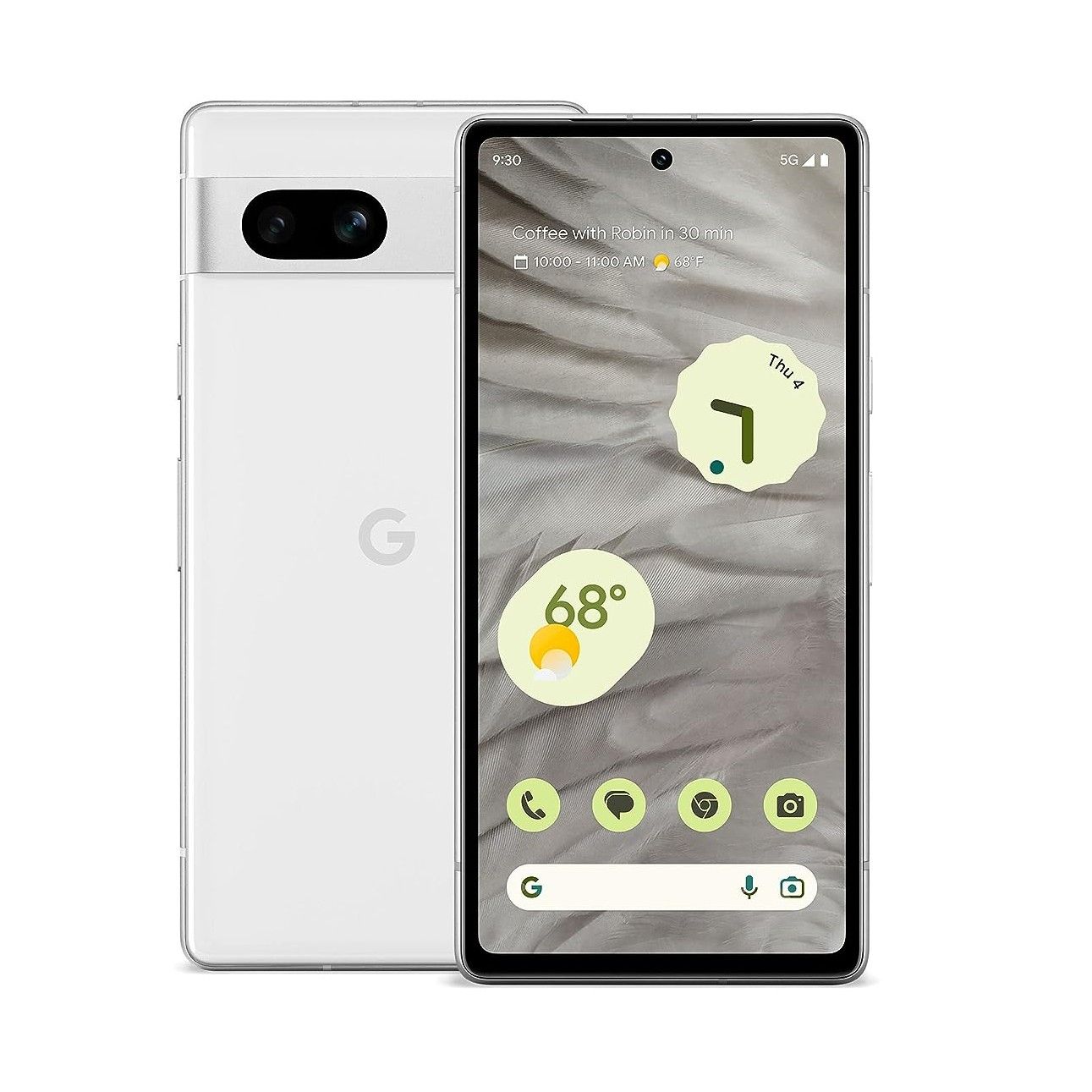
Google Pixel 7a
Low price, big features
The Pixel 7a offers flagship-level performance at a price not many phones can contend with. At $500, the Google Tensor G2 chip, 90Hz 6.1-inch display, and 8GB of RAM should make just about everyone happy. And with such a small display, the Pixel 7a is easily held in one hand. For those looking for the best bang for your buck, the Pixel 7a is the winner, hands-down.
- Feels and runs like a flagship
- Impressive price-to-performance ratio
- Screen and cameras are predictably great
- Battery life could be better
- Misses the long Android lifespan of newer Pixels
For those who want an uncompromising experience but scoff at the sky-high prices of flagship smartphones, you can’t do any better than the Google Pixel 7a. For $500, the Pixel 7a includes many flagship-level features, keeping it in contention with devices that cost almost twice as much. The Pixel 7a comes equipped with a 6.1-inch, FHD OLED display that has a refresh rate of up to 90Hz. Add in the Google Tensor G2 chipset and 8 GB of RAM, and you have a well-rounded device that can easily keep up with your day-to-day.
Like all Pixel devices, the Pixel 7a ships with a mostly stock version of Android with three years of Android upgrades and five years of security patches. The 4,385mAh battery should be good enough to give you five hours of screen-on-time, which is average at best. Depending on how hard you push your device, that could be a full day of use, but it can be much less.
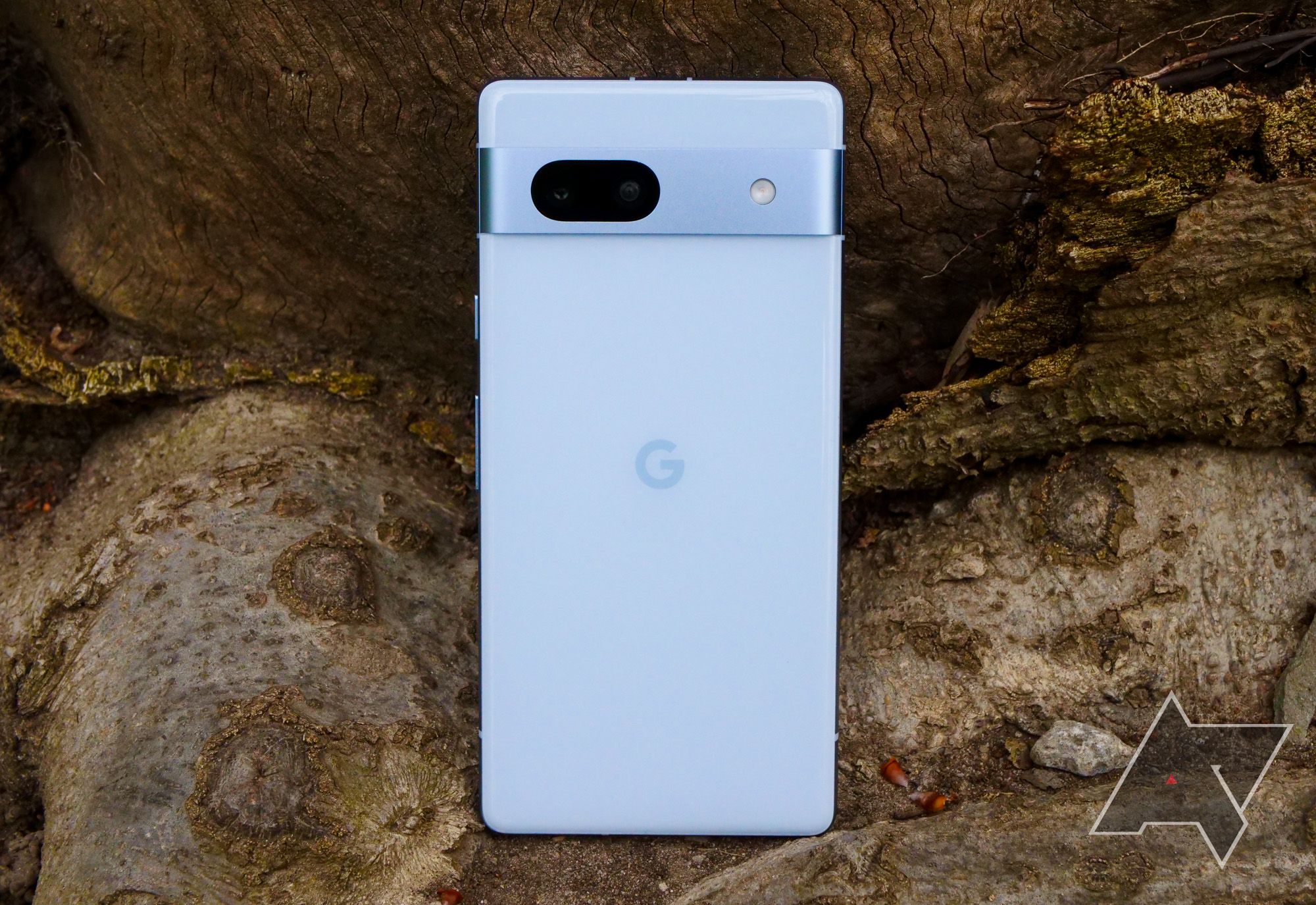
Google Pixel 7a review: If déjà vu were a smartphone
This year’s A-series is more like its flagship counterpart than ever before — for better and for worse
If you love taking photos, the Pixel 7a will surely put a smile on your face. Google gave the 7a some flagship love this year and went with a 64MP main camera and a 13MP ultrawide. Add in Google’s fantastic post-processing prowess, and you are bound to get some fantastic shots from this device.

Motorola Razr (2023)
A budget-friendly flip phone
Thanks to its budget price tag, the Motorola Razr (2023) is the perfect device for those hesitant to try a foldable device. This device single-handedly resets the expectation for flip phones and proves you don’t need to spend $1000 to get one. It may lack some of the bells and whistles of its more expensive competitors, but for $700, it’s tough to beat.
- Excellent in-hand feel
- Good battery life
- Fantastic internal display
- Cameras are good but not great
- External display is limited
The Motorola Razr (2023) is a great flip phone that does a lot right while keeping the cost down to a respectable $700. The Razr (2023) gets you solid day-to-day performance thanks to its Snapdragon 7 Gen 1 processor and 8GB of RAM. It won’t chew through the latest games and heavier workloads like the Snapdragon 8 Gen 2 will, but should do more than enough to keep up with your daily tasks.
This Razr has an excellent 6.9-inch pOLED LTPO display that can reach 1,400 nits and has a refresh rate of 144Hz. It’s the same panel used on its more expensive Razr+ sibling. To keep costs down, Motorola equipped this flip phone with a small 1.5-inch AMOLED external display. Due to its size, the external display is a bit limited to what it can display outside of messages and notifications.
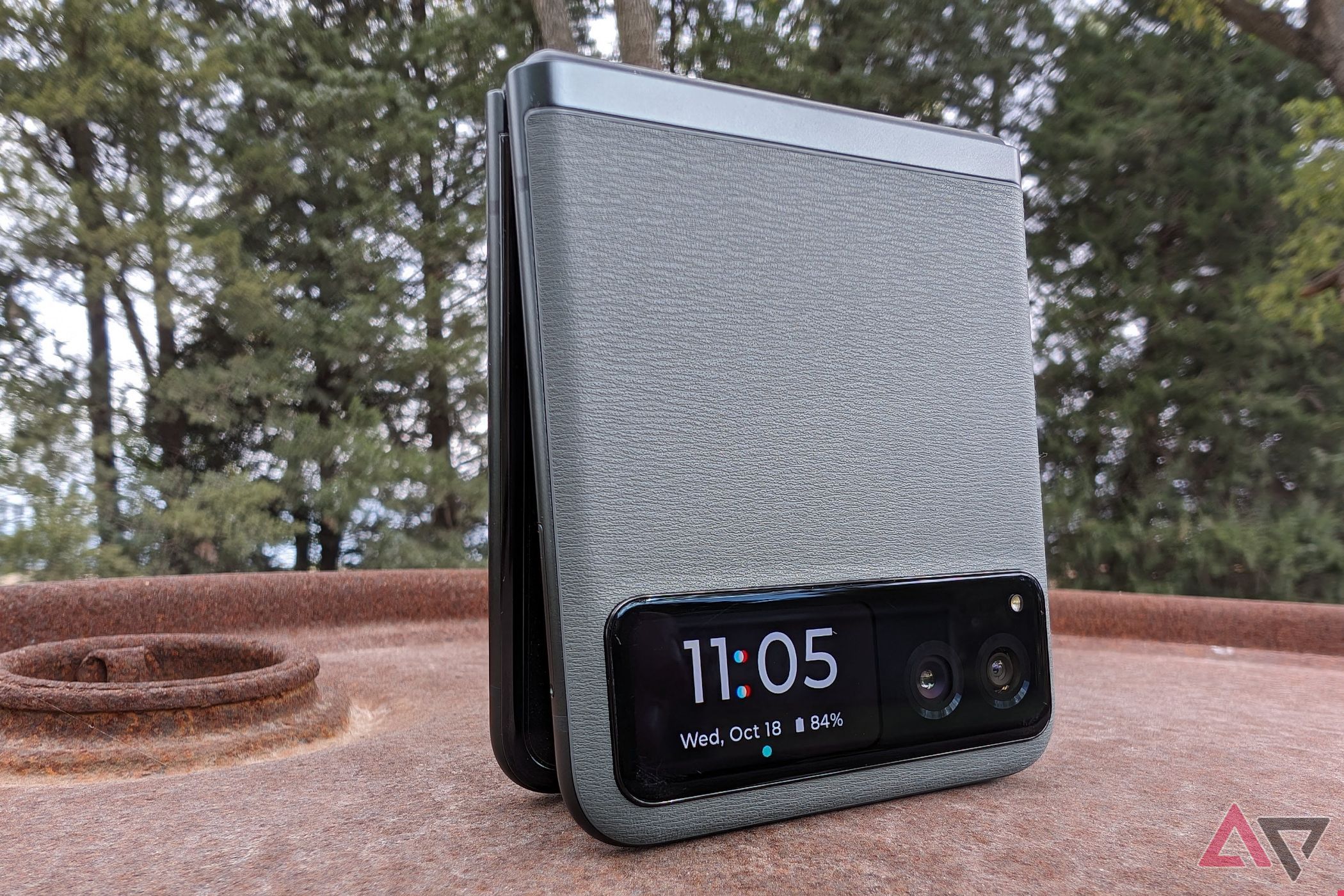
Motorola Razr (2023) review: Better than it should be
It’s not the flashiest or most powerful, but this clamshell foldable is great for the space
The Motorola Razr (2023) also ships with a dual camera setup that will get you good shots in most conditions, except when the lighting goes down. It has a 64MP OIS main lens, a 13MP ultrawide lens, and a 32MP front-facing camera. Thanks to its 4200mAh battery, you can expect all-day battery life, but not much more. The vegan leather exterior is pleasant to hold and offers a nice change of pace compared to the usual glass slab. One thing that may be a letdown is Motorola’s lackluster history of providing timely software updates. If that doesn’t bother you, then the Motorola Razr (2023) is tough to beat for the price.
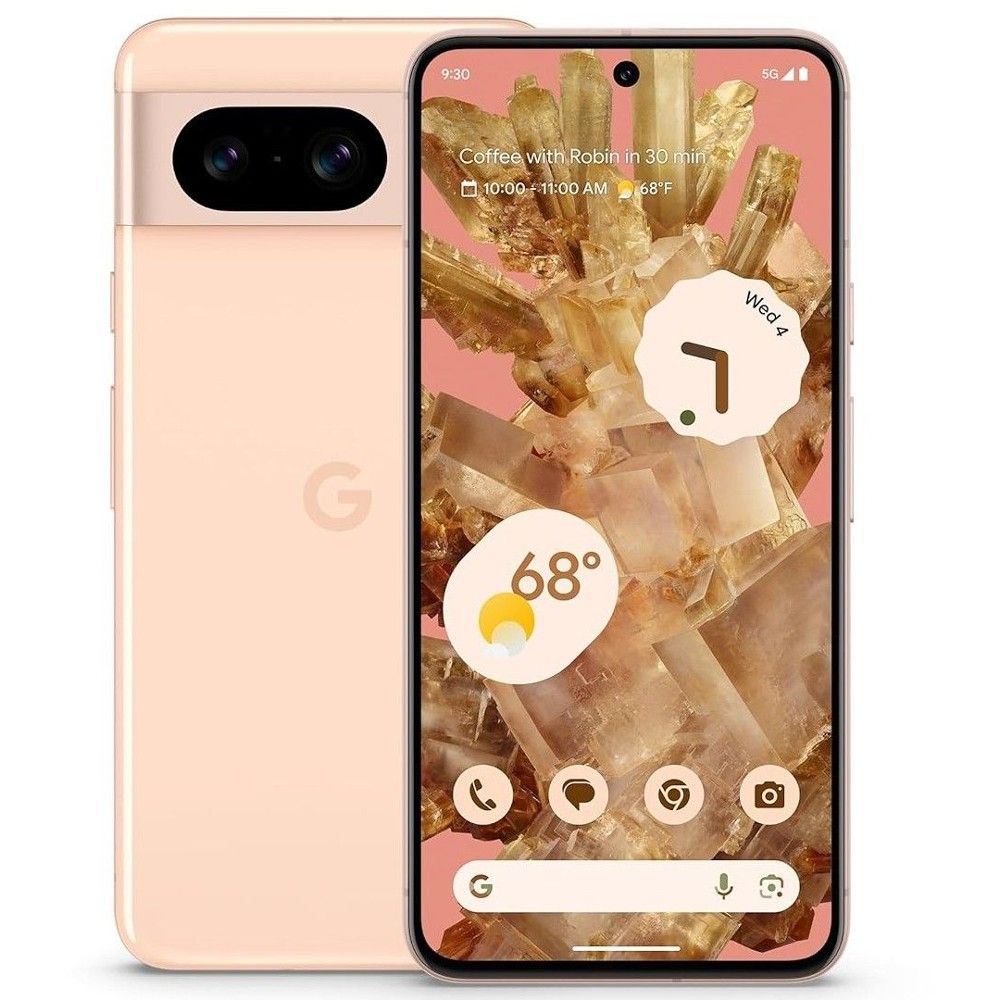
Google Pixel 8
Google’s new Pixel 8 expands on the machine learning and computational photography features Pixel phones are known for with a new Tensor G3 chip that powers even more sophisticated photo processing, giving it a photographic prowess that’s much greater than the sum of its camera hardware.
- Bright and brilliant display
- Solid battery life
- A staggering 7 years of OS updates
- Middling charging speeds
- Inexplicably missing sofware feaures compared to its larger counterpart
Although Google’s Pixel 8 is missing a few things from its larger sibling, it still packs an impressive number of AI-powered machine learning features into a small package, thanks to Google’s powerful new Tensor G3 chip. The dual-camera system may not be as impressive as other flagship phones, but Google more than makes up for that with advanced computational photography that not only delivers bright, vibrant, and natural photos, but also lets you edit them in ways that no other smartphone can.
For instance, the Tensor G3 powers a new Magic Editor, a generative AI tool that builds on the well-known Magic Eraser from prior Pixel phones to let you edit photos in ways you may have never imagined possible. Now, not only can you remove background objects, but you can actually move things around in your photos and change the look of things, and it’s all amazingly effortless. Google’s AI algorithms will automatically generate the pixels needed to fill in the blanks, so your edits look natural.
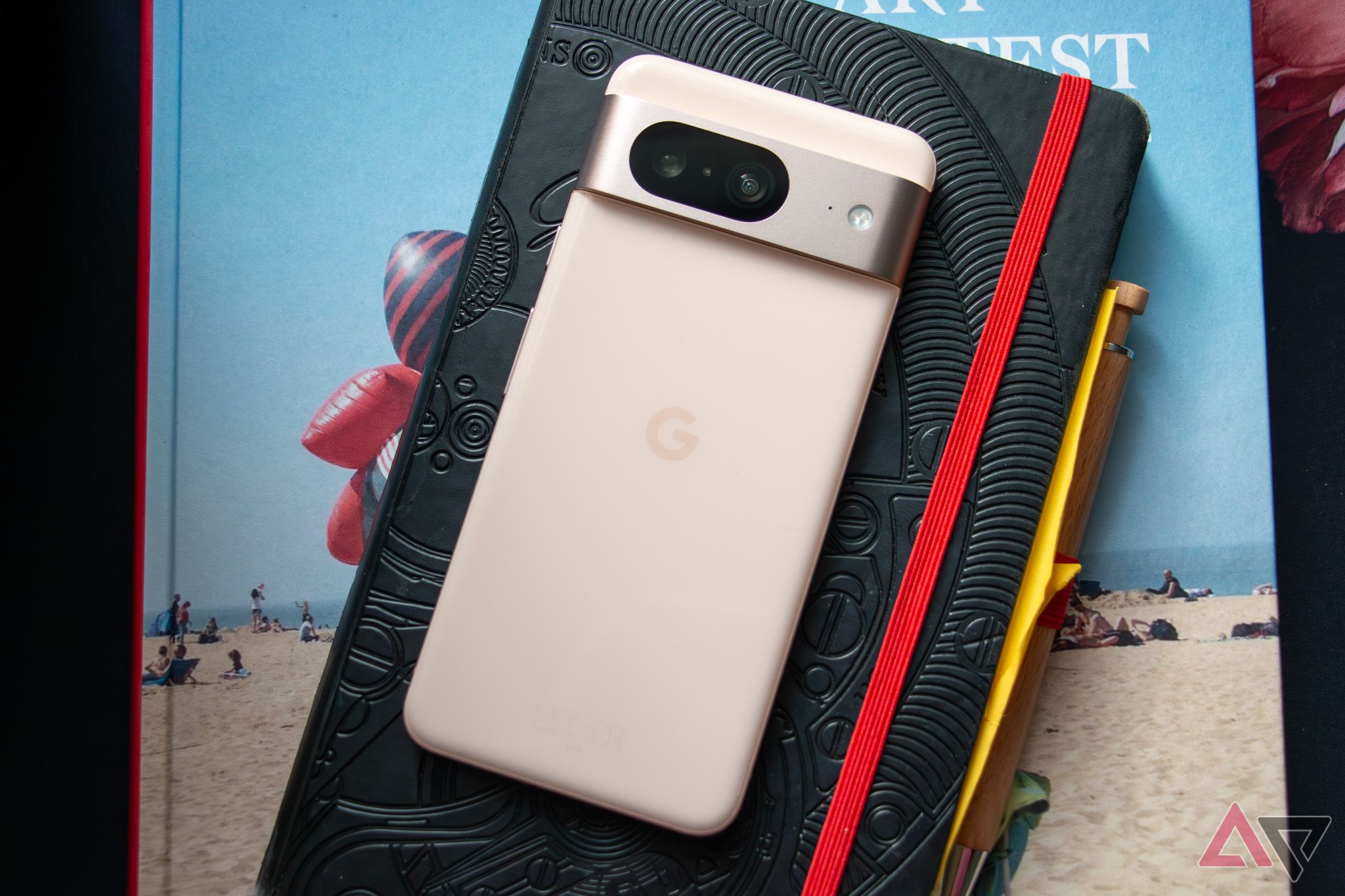
Google Pixel 8 review: The Pixel for the masses
The Pixel 8 doesn’t need every feature the 8 Pro offers, it’s packing more than enough
While the Tensor G3 isn’t the fastest chip in terms of raw performance, it can still more than hold its own for everyday tasks and casual gaming, and while the Pixel 8 doesn’t come cheap, it’s important to remember that you’re not only getting Google’s latest and greatest phone, but this time around the company is promising an unprecedented seven years of major Android updates, so this one has staying power that’s unlike any other Android smartphone on the market today.

Google Pixel 6a
The best price on a compact Android phone
In the Android market, it’s nearly impossible to beat out Google’s Pixel A-series devices in terms of value, and that’s why the Pixel 6a makes such a great small phone. Its 6.1-inch screen is small enough to make it pretty easy to use one-handed but large enough not to feel like you’re missing out on important screen real estate. Combined with Google’s stellar Tensor chip, outstanding camera performance, and fantastic price, it’s a budget small phone worth picking up.
- Stellar camera performance
- Excellent Pixel software
- Great price
- Fingerprint sensor could be better
- No wireless charging
The good news is that not only expensive phones make this list. For instance, the Google Pixel 6a is a prime example of the kind of value a budget Android phone can give you if you don’t mind a slightly older design and fewer premium features. Its 6.1-inch screen is small enough to be accessible by one hand, although its display is limited to a 60-hertz refresh rate. At least it’s an OLED panel.
The software has always been the hallmark of the Google Pixel lineup, considering that the company often gets the newest versions of Android out to its users first. And while that can occasionally mean that some new features are somewhat clunky right out of the gate, overall, we love the Google Pixel software experience. A big part of that is because of Google’s focus on ambient computing; Google Assistant’s deep integrations and platform benefits on Pixels are profoundly helpful. Features like automatic call screening, Direct My Call, Wait times, and even the Magic Eraser make your life so much easier and less stressful, and it’s all included in the Pixel 6a’s great price.
The phone’s biggest issue is its annoying interruptions in signal strength, an unfortunate growing pain with Google’s Tensor chips. It’s not unbearable by any means, but the minor annoyance of having to restart the phone when leaving a Wi-Fi network because it could not connect to a cell network did happen to us a few times. Software updates have improved this issue, but you might still run into this problem.
.JPG)
Google Pixel 6a review: Regression is the better part of value
Easily one of the best value phones you can get, if you’re willing to pay the Pixel toll
Suppose you can handle a few drawbacks of having a plastic body and a slightly less impressive screen. In that case, the stellar camera performance, all-day battery life, and incredible Google software make Google’s smallest phone feel like its more expensive Pixel siblings.

Samsung Galaxy Z Flip 5
Small and big at the same time
While phones may never be as small as the height of the flip phone era ever again, the 6.7-inch 1080p screen of the Galaxy Z Flip 5 can fit into the smallest of pockets. Sure, Samsung’s clamshell foldable has a few drawbacks that make the expensive price point a little unsettling; however, there’s nothing quite like it on the market.
- Unique foldable design
- Allows big screen in a small form factor
- Improved hinge design
- Cameras could be better
- Battery life isn’t too great
While the Samsung Galaxy Z Flip 5 isn’t a small phone in the traditional sense, its foldable design makes it easy to carry around and fully embraces what the promise of foldable phones always was from the get-go. Unfolding the Z Flip 5 reveals a big 6.7-inch display, but folded up, it’s only about 3.4 inches, making it easy to slip into a pocket, bag, or purse.
Once again, the software touches that make use of the unique form factor of the Z Flip 5 are truly a treat, even if they are a little more fun than they are practical in some situations, like being able to prop the phone up in an “L” position (known as Flex mode) to use the front-facing camera hands-free, or even scrolling through apps with a little digital trackpad. Neat features like these make the Z Flip 4 a fun and innovative device.

Samsung Galaxy Z Flip 5 review: Flex Window for the win
A slightly larger cover screen makes all the difference in the world
Although the device is powerful and has full 5G support — making it a fantastic 5G phone — it does lag behind its more traditional slab-style Galaxy brothers regarding camera performance and battery life. Still, if you love having a big phone that can become a small phone when you need to carry it around, there’s no better foldable to pick up.

Apple iPhone 15 Pro
Lightweight and powerful
The iPhone 15 Pro packs a lot of power into a relatively small frame, with Apple’s latest A17 Pro chip that’s optimized for console-quality games, a leading-edge camera system, and a new titanium alloy construction that makes it lighter than any other flagship smartphone in its class.
- Lightweight titanium construction
- Incredible performance
- Excellent camera system for a smaller phone
- Apple’s iOS isn’t as customizable as Android
- Pricey
Apple upgraded the iPhone 15 Pro to a souped-up A17 Pro chip with hardware-accelerated ray tracing and other GPU enhancements that make it one of the first smartphones capable of playing full console-quality games. That’s joined by a 6.1-inch OLED display with a 120Hz refresh rate and 2,000 nits of peak brightness that can easily hold its own against some of the best Android smartphone displays out there. It’s also lighter than ever, thanks to a new titanium alloy construction, and it’s the first iPhone to finally ditch Apple’s proprietary Lightning port in favor of USB-C.
While the camera system doesn’t match up to the high optical zooms found on the largest Android flagships, you’ll be hard-pressed to find a better camera on any smartphone in this size class. The three-lens system combines a 48MP primary camera with 12MP wide and 3X telephoto lenses, plus a LiDAR scanner for taking portrait shots and delivering faster autofocus in low light. The power efficiency of the A17 Pro chip and iOS 17 should easily get you through a day of typical use, although if you want to push the gaming capabilities of Apple’s new A-series chip, you’ll want to keep a charger handy.

I want every Android phone to steal the iPhone 15 Pro’s Action button
Gimme those physical shortcuts, please
Unfortunately, if you’re used to Android’s level of customizability, this is where the iPhone 15 Pro still falls short. Apple’s iOS has significantly improved in recent years by offering features like widgets and shortcuts, but it still doesn’t come close to how extensively you can tweak your user experience on most Android phones.
A small phone that doesn’t suck
There are still quite a few smaller devices available for those who love them. While these devices may not be as small as they used to be, a 5.9-inch display with minimal bezels will feel absolutely tiny in your hand. The one-handed nature of these devices makes using them a breeze and fitting them into your pockets a simple endeavor.
The Asus Zenfone 10 bucks the trend that every other smartphone manufacturer has been jumping on for years by offering a small phone that is perfectly pocketable and doesn’t skimp on performance. It includes the powerful and capable Snapdragon 8 Gen 2, so you never have to worry about being unable to run the games you want. Its use of Android is also pretty great, with a ton of gesture controls that make zooming through the UI on the Zenfone 10 a breeze.
If you want something with a bit more support and don’t mind spending a little more, then the Samsung Galaxy S24 offers a lot in a svelte package. Samsung made great strides in making the Galaxy S24 one of the best small phones on the market. It has a beautiful display, decent battery life, and an impressive 7 years of software support.
The Google Pixel 7a is for those who want all the benefits of a flagship smartphone but hate the idea of flagship prices. You are getting great performance from the custom Tensor G2 chipset and a beautiful 90Hz display. The images you can get from the Pixel 7a are simply amazing, and because this is a Google device, you can expect timely updates for years to come. Just make sure you get yourself a great case to keep the camera bar in perfect shape.

Asus Zenfone 10
Truly compact Android phone
When it comes to outstanding small phones, the Asus Zenfone 10 is easily a great choice for people who really want to use a phone in one hand. This compact 5.9-inch screen is quite a bit smaller than most phones, but it doesn’t suffer in quality thanks to its Super AMOLED 120Hz display. Plus, it’s powered by the Snapdragon 8 Gen 2 and has up to 16GB of RAM to accomplish everything you need to do.





